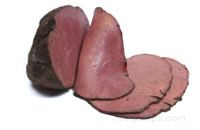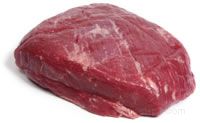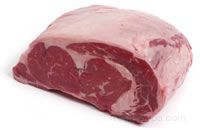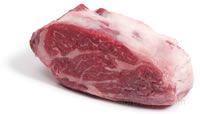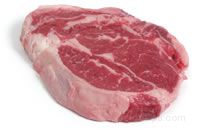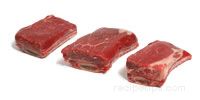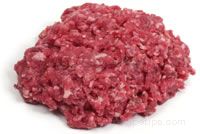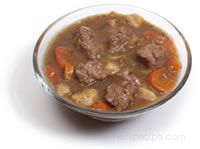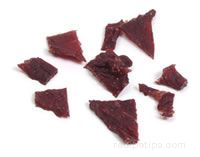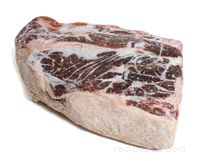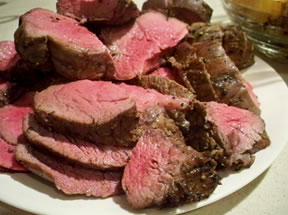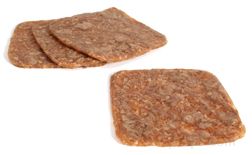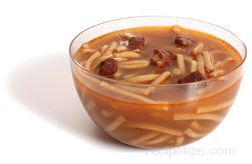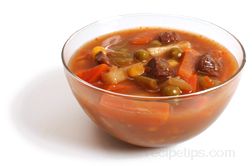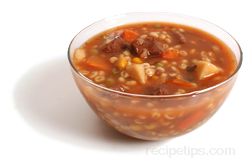Preserving beef (as well as many other types of meat including pork and fish) with salt or with a brine solution was a common practice in the days prior to the invention of mechanical refrigeration. Salting and brining methods are still widely used today, but the purpose is more for creating the unique flavor that these techniques impart in the meat rather than the necessity of preserving the meat due to the lack of refrigeration.
Salted Beef Products | |
Salt BeefBeef used for salt beef is usually a cut from the round primal, which is then soaked in a brine solution. Some types of salt beef must be soaked in water and rinsed repeatedly before the beef can be consumed, because the brine solution might be particularly salty. | |
Pastrami
|
Pastrami is a salted beef product that is seasoned with peppercorns and spices. It is then dry cured and smoked. Pastrami is a popular delicatessen meat that is most often thinly sliced and used as an ingredient for sandwiches. |
Corned Beef
|
Corned beef refers to beef that has been preserved and flavored in a brine solution that is usually prepared with salt, which acts as a preservative. Sugar is stirred into the brine solution, which prevents the salt from hardening the meat. Saltpeter is also added to the solution to help maintain the red coloring of the corned beef. Various spices are added for flavoring. The word corned in corned beef refers to the old English word corn, which was a term with the definition "small kernel or particle," such as the small kernels or particles of salt that were used as the preservative. Corned beef is available as a sliced deli meat for sandwiches. Whole beef cuts from the brisket are often prepared as a main dish, served with cooked cabbage; hence the term, "corned beef and cabbage." This is a dish that is quite popular in a number of Western countries, including the United States where is often served as a favorite meal for St. Patrick's Day celebrations. |

